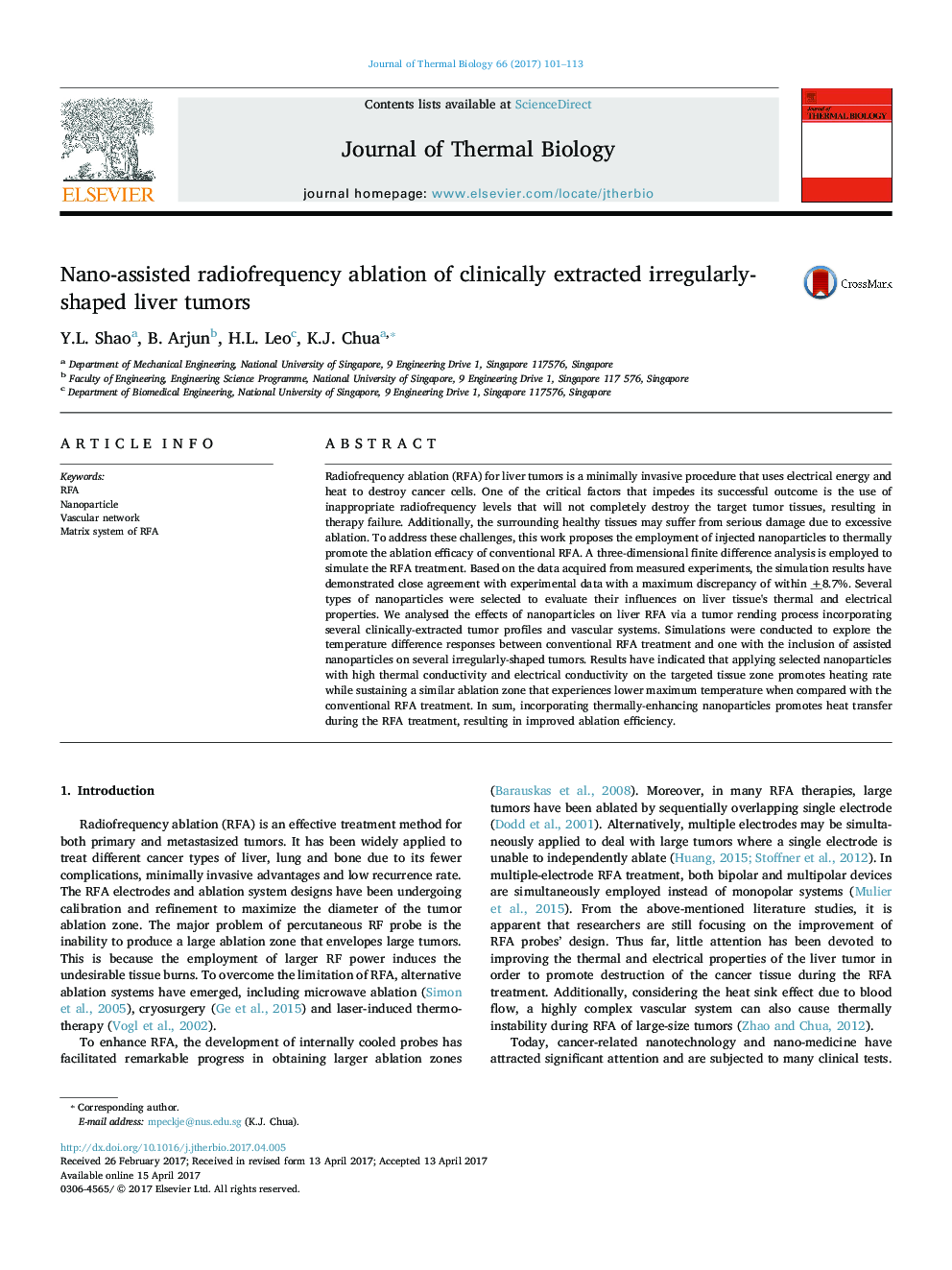| کد مقاله | کد نشریه | سال انتشار | مقاله انگلیسی | نسخه تمام متن |
|---|---|---|---|---|
| 5593519 | 1571081 | 2017 | 13 صفحه PDF | دانلود رایگان |
عنوان انگلیسی مقاله ISI
Nano-assisted radiofrequency ablation of clinically extracted irregularly-shaped liver tumors
ترجمه فارسی عنوان
تشخیص رادیوفرنویسی توسط نانو از سلولهای تومور کبد نامنظم شکل گرفته استخراج شده است
دانلود مقاله + سفارش ترجمه
دانلود مقاله ISI انگلیسی
رایگان برای ایرانیان
موضوعات مرتبط
علوم زیستی و بیوفناوری
علوم کشاورزی و بیولوژیک
علوم کشاورزی و بیولوژیک (عمومی)
چکیده انگلیسی
Radiofrequency ablation (RFA) for liver tumors is a minimally invasive procedure that uses electrical energy and heat to destroy cancer cells. One of the critical factors that impedes its successful outcome is the use of inappropriate radiofrequency levels that will not completely destroy the target tumor tissues, resulting in therapy failure. Additionally, the surrounding healthy tissues may suffer from serious damage due to excessive ablation. To address these challenges, this work proposes the employment of injected nanoparticles to thermally promote the ablation efficacy of conventional RFA. A three-dimensional finite difference analysis is employed to simulate the RFA treatment. Based on the data acquired from measured experiments, the simulation results have demonstrated close agreement with experimental data with a maximum discrepancy of within ±8.7%. Several types of nanoparticles were selected to evaluate their influences on liver tissue's thermal and electrical properties. We analysed the effects of nanoparticles on liver RFA via a tumor rending process incorporating several clinically-extracted tumor profiles and vascular systems. Simulations were conducted to explore the temperature difference responses between conventional RFA treatment and one with the inclusion of assisted nanoparticles on several irregularly-shaped tumors. Results have indicated that applying selected nanoparticles with high thermal conductivity and electrical conductivity on the targeted tissue zone promotes heating rate while sustaining a similar ablation zone that experiences lower maximum temperature when compared with the conventional RFA treatment. In sum, incorporating thermally-enhancing nanoparticles promotes heat transfer during the RFA treatment, resulting in improved ablation efficiency.
ناشر
Database: Elsevier - ScienceDirect (ساینس دایرکت)
Journal: Journal of Thermal Biology - Volume 66, May 2017, Pages 101-113
Journal: Journal of Thermal Biology - Volume 66, May 2017, Pages 101-113
نویسندگان
Y.L. Shao, B. Arjun, H.L. Leo, K.J. Chua,
